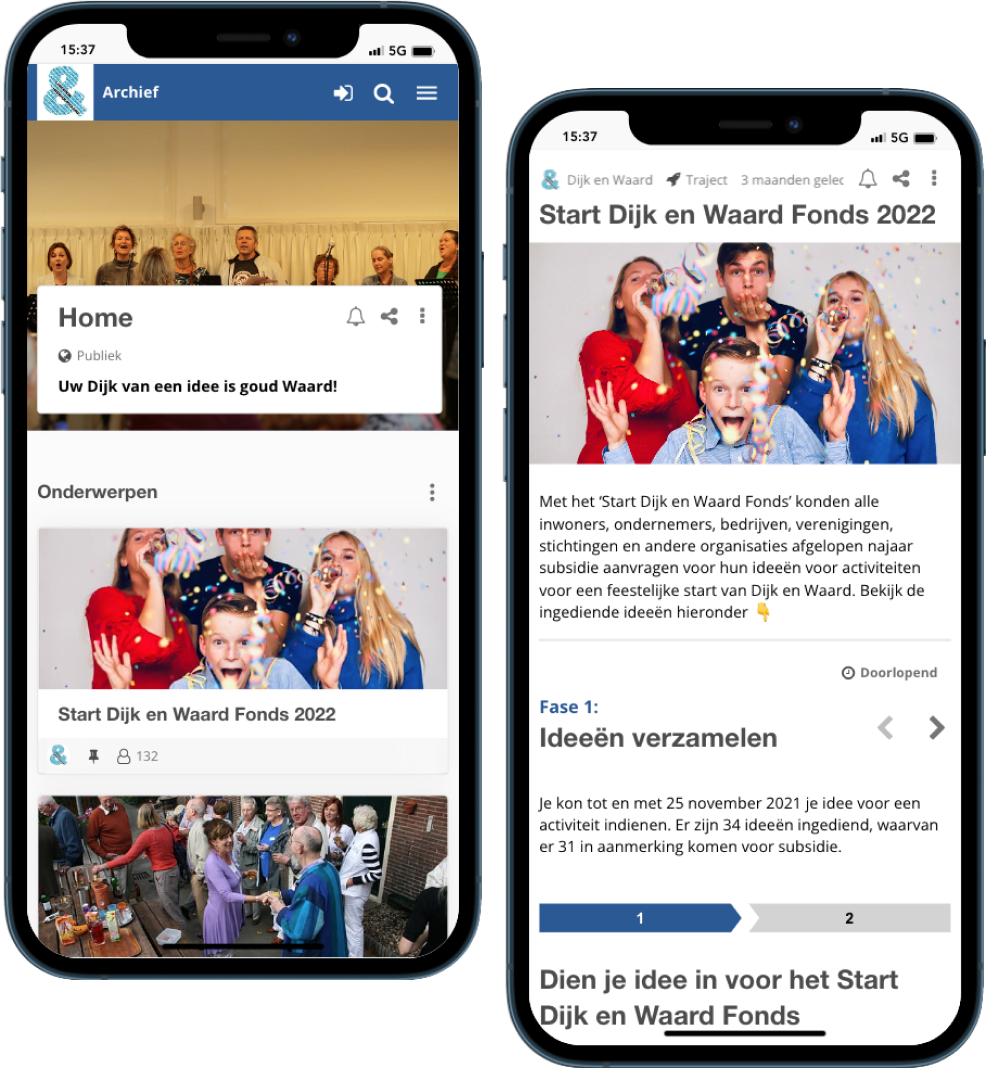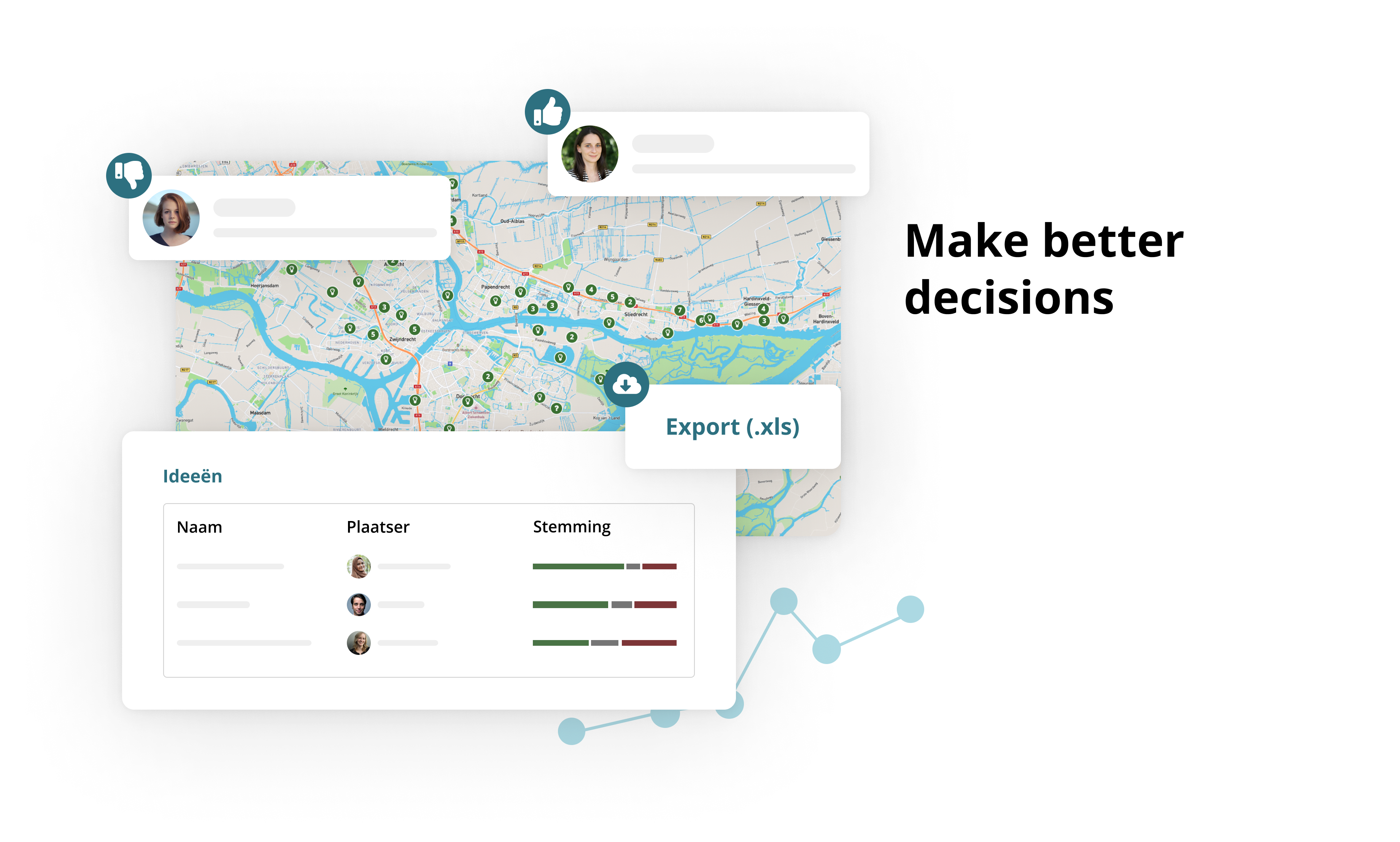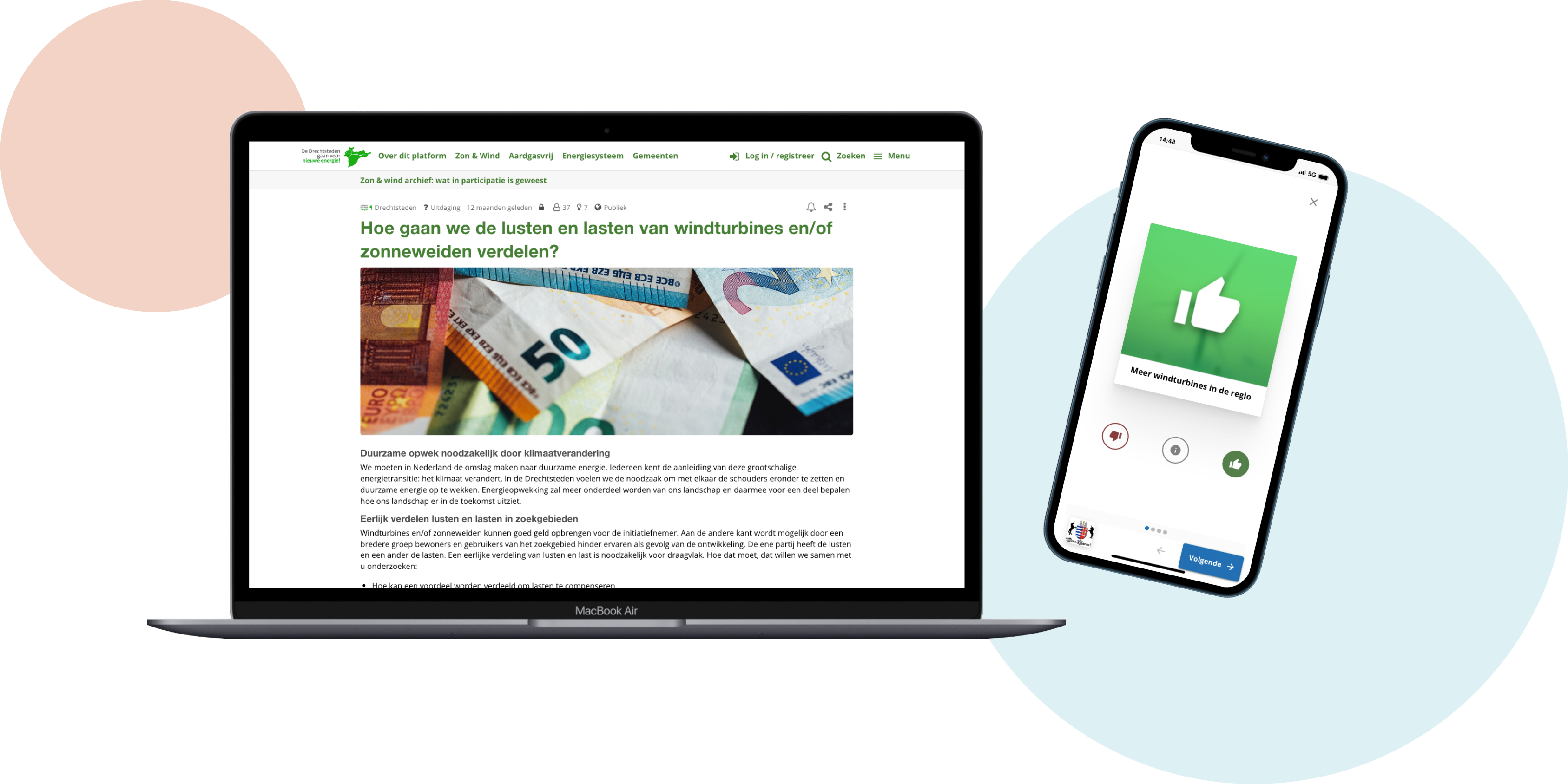Argu
An open source e-democracy and community platform, to help organizations reach their constituencies.

Our democracy and the Internet
Two of our favorite inventions. Too bad they don't work so well together yet. There are two problems we need to solve:
1. The internet can play a better role in our democracy
There are millions of us living in a country, but all the big decisions are made by small groups in old wooden rooms. Countless valuable insights and ideas are skipped because of this. With the Internet, people could share their ideas, think along and give their opinions from all sorts of places.
2. Social media are not designed for solving problems
Social media are mostly designed for people to look at ads, not to solve problems together, or to get a nuanced view of something. Online discussions are often cluttered, terse, and thus not very useful. Understandably, then, many organizations are afraid to use the Internet.

Our solution
So we set to work to build an online democracy / community platform. Designed to make it as easy as possible for citizens to participate, and for civil servants to ask questions in the best possible way. We launched Argu in 2015, and have now completed over 150 participation projects. We have built in numerous functionalities, such as digital voting, responding, dynamic forms, questionnaires, map views, notifications, rights management, groups, custom domain names, export capabilities, custom theming, and much more.

Technology
Argu is by far our biggest project, and a major source of our revenue. It is a SAAS solution that we have been developing and keeping live for several clients for years. Developing Argu has taught us to create web applications that are maintainable, flexible and scalable.
Argu's stack consists of several services, two of which are particularly relevant:
Back-end: Apex
The foundation of our back-end of Argu is built based on Ruby on Rails. Given that we had the desire to make the data available as Linked Data, we wrote an Open Source library for this: Linked_Rails. This gives Apex a number of unique qualities:
- Everything is linked data. Even the buttons, forms, and actions are described as data. This gives us great flexibility, so we can use the same source code for very different use cases.
- The API is the same as the website. If you can view a page, you can retrieve the data from that page using the same URL. Actually incredibly logical (see our article on API design), but oddly enough quite rare.
Front-end: Libro
Libro is a web application written in React + Typescript. Libro stands for linked data browser. This is what makes Libro unique: at its core it is not a regular app, but a data browser. Under the hood, libro works with the Link libraries, developed by our CTO Thom van Kalkeren. Libro communicates exclusively with Apex by exchanging linked data (RDF). We are one of the first SAAS companies to put linked data so far into its stack. That has given us some unique challenges, such as a performance bottleneck for which we developed a new RDF serialization format.
Created with
Source code available
The Argu project is entirely Open Source and free to use. Check out our Gitlab repository for instructions to host an Argu server.

